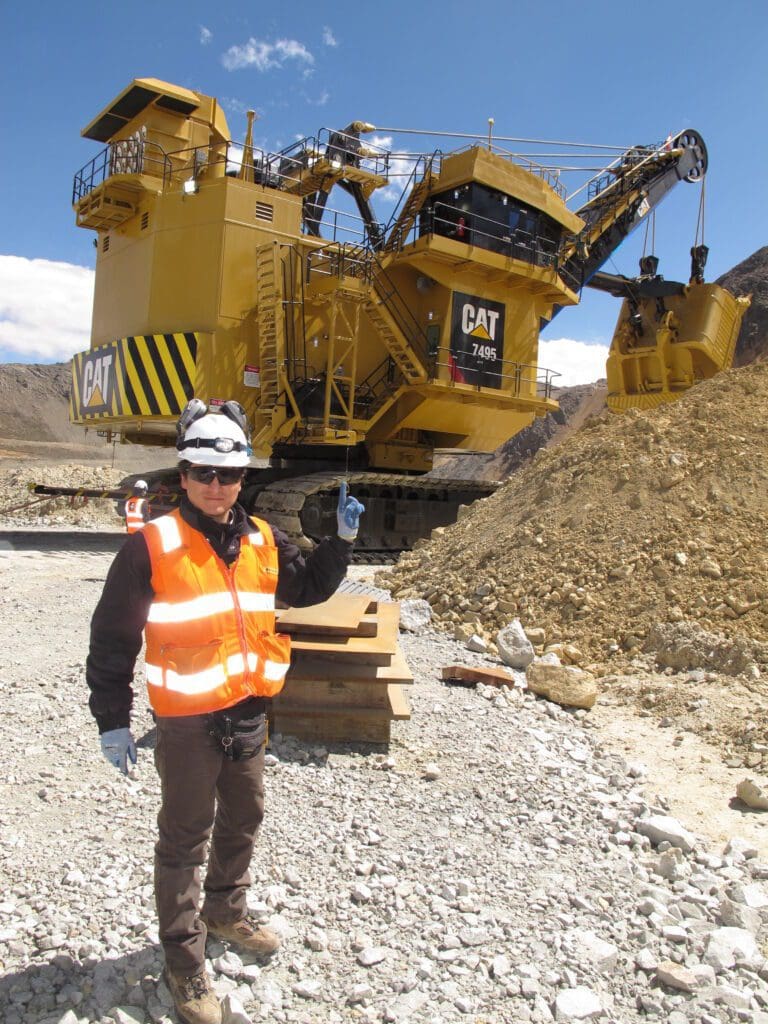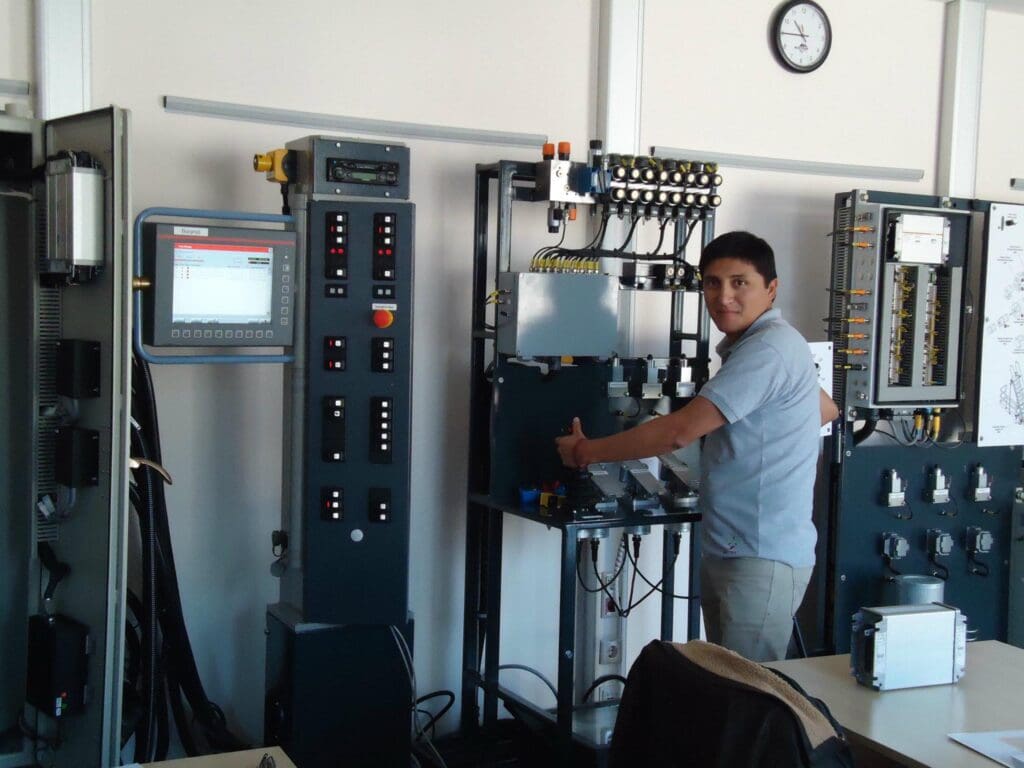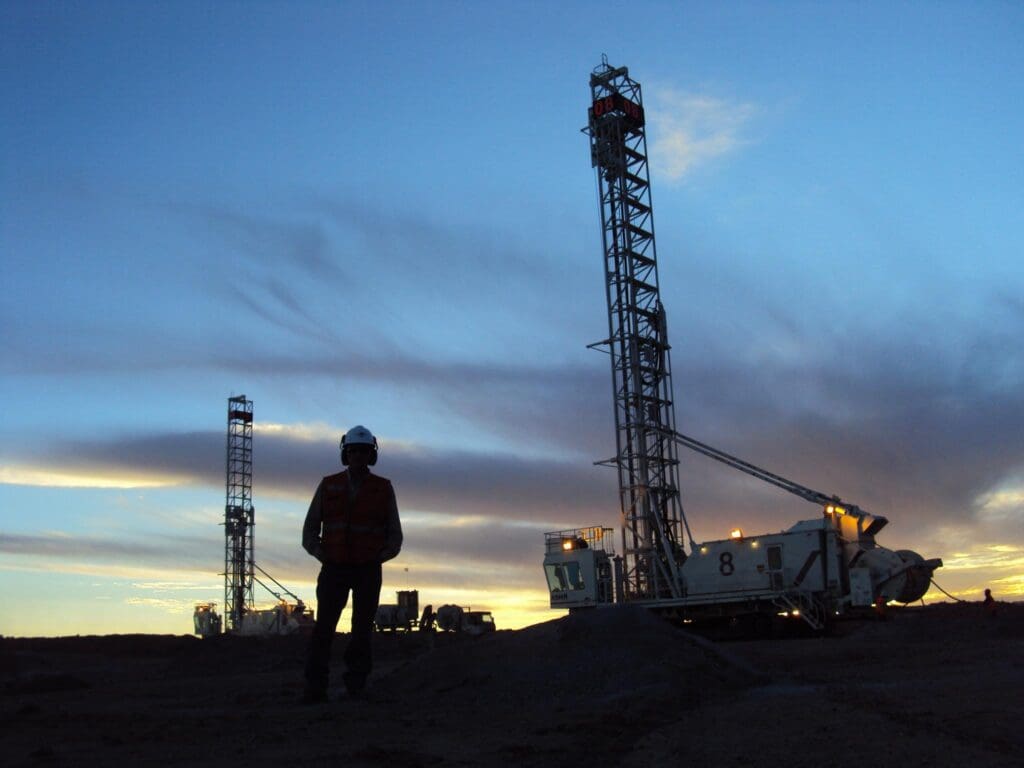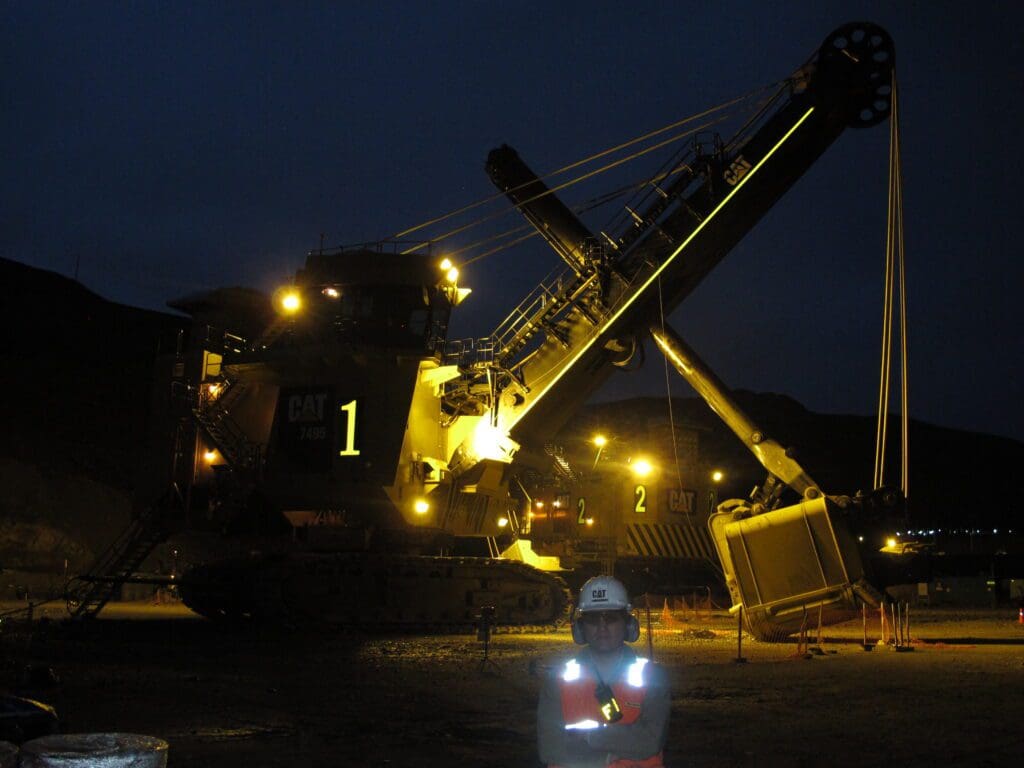Life of a Field Service Engineer in the mountains
Ever wondered what it is like to work as a Field Service Engineer in the mountains at altitude? Frank H Rojas is an Electrical Support Specialist/Field Service Engineer for Shovels & Drills from Peru whose work takes him to mines high up in the Andes mountains.
In this article, Frank has shared his background and typical workday. He also shares his advice for new field service engineers.


Frank H. Rojas working as an FSE in the Andes mountains of Peru
From Electronics Engineering to Field Service
Could you give a brief description of your background and what led you to work in mining and as an engineer?
As a young electronics engineer after University, I started travelling around my country. My job was doing maintenance to satellite antennas in remote places in the mountains. I was travelling around with a defined departure day but not a return date. It kept me active and added to my wish to see to the world because I really enjoy travelling.
Then working for a mining related company gave me the opportunity to grow my technical skills. I became “famous” solving problems that other engineers took longer to figure out.
My main experience so far is in big mining machines such as:
Shovels
Excavators
Drills
Was there a particular person who suggested this career?
No, there wasn’t a particular person. I found it by researching where to work and how to develop my career. A field engineer’s role is ideal for me.
Typical Day as a Field Service Engineer in the mountains


What’s your typical day like?
I wake up early in the morning and move from the camp to the field offices in the mine. Then, I have a number of things to do:
writing reports
reading pending cases that need solving
carrying out inspections on machines either while they are working or when they stop for a short period
assisting with breakdown failures
general troubleshooting on the machines
I usually end up staying so late solving things that I miss dinner!
How much of your time is spent ‘in the field’ – working on site?
It’s at least 30% to half a day on average. However, this turns into 80-90% if there are tough problems.
How much of your day is spent on checking data and admin?
On average, there is a lot of checking and paperwork which takes 30-40% of my time.
Working away from home as a Field Service Engineer on site in the mountains
How much travel do you do?
My busy years mean that I am travelling and on site for about 280 out of 365 days. For my job, you need to like travel!
Most challenging part of the job
What do you find most challenging about the work?
The weather is a key challenge of my role. It is cold in the mountains, and so we are dealing with rain and snow. Plus, there is altitude sickness to consider and deal with. To be honest, the most challenging part of the job is always going to be technical issues.
What has been your most difficult job so far?
My most difficult job to date has been when I was the commissioner of 12 blasthole drills and 3 shovels. I was expecting everything to work perfectly but found big problems even though I had brand new machines which had been assembled recently.
I tried to meet the dates to release the machines on time.
Have you ever arrived on site and found that it’s been much easier than you expected? For example, that you just needed to make a small adjustment?
Sure, sometimes the “back to basics” statement works perfectly.


Making a winner
What sort of person makes an excellent Field Service Engineer?
There are five key attributes:
Desire to keep learning technical information and skills
Keen to be the best
Desire to conquer the world
A little bit competitive
Nonconformist
How important is ongoing training?
Skills without knowledge will lead to a quick failure in the business
How key is it to have a mentor and a good team around you?
It is really important to have a circle of trust with technical knowledge. Then when things look dark, a simple phone call can:
save a lot of time
mean a day isn’t lost
release pressure and stress.
New field service engineers working in the mountains


What advice would you give to someone who has just started their first job?
The first thing I suggest is to read technical information a lot even on your days off. That will mean that you learn fast and progress well in the organisation. Then you will be able to take rest days or get more days free because you will have become so important to the company!
The other thing I suggest is to balance your time – not everything is about the job. I learnt it a little bit late, but I don’t regret anything I have done workwise.
How important is your overall fitness?
For lots of travelling to remote places like mountains with severe weather, being fit helps enormously.
Apart from a strong technical background, what are the three most important skills to have?
The three key skills are being:
Friendly
Responsible
Adaptable
Further reading
Ron Evans a mining equipment Field Service Engineer in the USA


Responses